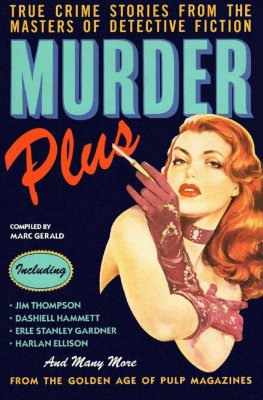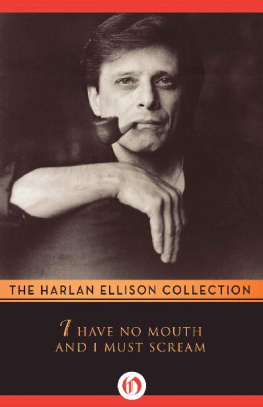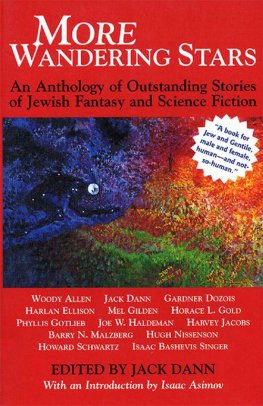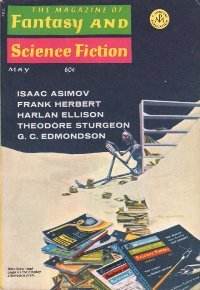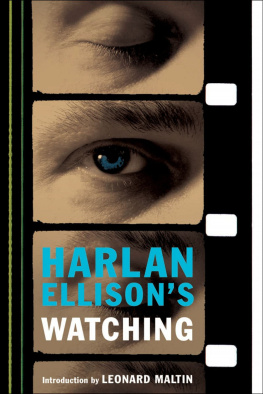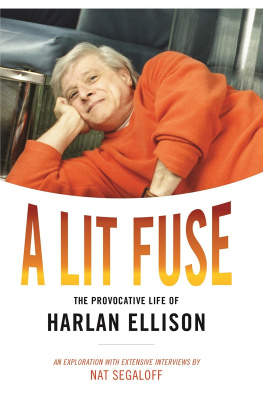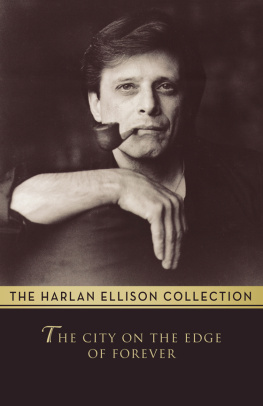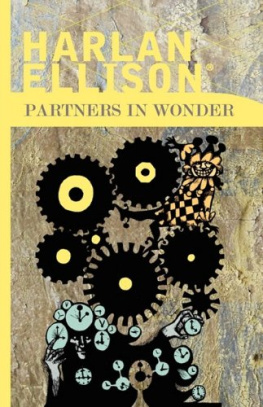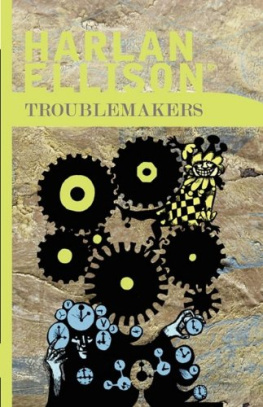INTRODUCTION
Days of Blood and Sorrow
Im writing this soon after New Years Day, 1975. The Port Chalmers Flu has struck me down and I lie here in bed with the typewriter propped on my lap, bottles of expectorants, Actifed, Contac and Empirin all around me, and the little tv on the foot of the bed burbling Lets Make a Deal.
I dont know which will kill me first: the flu or Monty Hall.
There is a woman wearing a toilet plunger on her head and her braided hair be-ribboned with asswipe. I cant tell what it is shes won, nor even what Monty is offering her in exchange for it, because I have the sound turned off. I may be down, but I ainout.
From time to time in the writing of this introduction, I will keep you apprised of what daymares flit across my screen; if I have to be miserable, so do you. We can go nutso together.
As you may have gathered, I watch quite a bit of television. Friends (and blind dates whove decided they dont care for the guy their girlfriend fixed them up with and wish they were back home washing their hair) give me a lot of static about how much television I watch. Almost nobody I know will openly cop to sitting in front of the box sucking on that glass teat. They all do it. Most of them would sooner have a haircut from Jack the Ripper than admit when they get home from work they kick off their shoes and watch reruns of Gilligans Island. Theyd sooner share a toothbrush with a leper than admit that given the choice between a brilliant documentary on the lifestyle of the Jvaros of Ecuador on the educational channel and an Ann-Margret Special on NBC theyd pick the latter over the former every time. But they all do it. So do I. Were a 21" eyeball nation, weaned from the start by flickering phosphor-dot images.
But theres still that hateful snobbishness about tv. Dips my age put it down without fail, without redeeming remark, without a suggestion that the medium has a saving grace. Yet every night, if one selects ones viewing with anything greater than the brain power of a maggot, one can find at least an hour or two of worthwhile programming. It might be Tracy Keenan Wynns incredible script for The Autobiography of Miss Jane Pittman or a rerun of those antic spirits John Steed and Mrs. Emma Peel in The Avengers or Olivia Newton-John on The Midnight Special or the genuinely bizarre ghouls of M*A*S*H.
For those who tune in to garbage, who have the last act of Barnaby Jones figured out three minutes into the first act, who are disappointed that Jack Lord cant act one-millionth as brilliantly as Al Pacinos left instep, disappointment is a self-fulfilling prophecy. Or, as a bad movie script once phrased it, Lie down with pigs, get up smelling like garbage.
Television is the popular entertainment. It is no better, I suspect, and no worse, Im sure, than any of the popular entertainments were, when they were serving the needs of the mass. Pulp magazines, B movies, vaudeville. They were all the honorable forefathers of what we get on the tube every day.
(A bald, sallow, snake-eyed hypester is silently trying to sell me 22,000 acres of California land wrested from the unwilling hands of Spanish settlers and Amerinds. I dont have to hear what hes saying, I know this one by heart. Hes telling me I can erect a terrific ticky-tacky cracker box of a vacation home on this wonderful acreage. He doesnt mention that the nearest water is eight miles away, nor that they havent put in any conveniences like electricity or roads. Fuck him. Onward.)
I like to think of Theodore Sturgeons Law when I hear the snobs badrapping tv: 90% of everything is crap. That means 90% of everything is mediocre, as I read the Law. And that goes for books, plays, cars, puddings, people and movies. The percentage is probably higher with politicians.
So if 90% of television is crap, mediocre, banal, yawn-evokingnobody promised you a rose garden.
Theres still that 10% and its often as good as the best books, movieswell, you know where Im going.
Add to that simple philosophy that tv is keeping alive old movies and introducing them to a new generation, and the tube doesnt seem as awful as its slammed to be. Huck Barkins daughter, Tracy, is fifteen. She would rather pass up a studio screening of something as mindless as Thunderbolt and Lightfoot to see Fred and Ginger in Flying Down to Rio (1933). When I went to dinner at Huck and Carols a few weeks ago, I was wearing a T-shirt that said Ricks Caf Amricain on it. There were four or five people at table when I sat down, and they all looked at it without knowing what it meant. Only fifteen-year-old Tracy, when she came to the table, grinned and recognized the name of Humphrey Bogarts nightclub in Casablanca. At that moment I felt very kindly toward television. In a time when young people seem sadly disinterested in the pasteven a past as recent as eight or ten years agotv serves a necessary function. It becomes the handservant of Santayanas warning that, Those who cannot remember the past are condemned to repeat it.
Something that periodically straightens kids heads about the difference in time-frames between, say, the Early Cretaceous and the U-2 imbroglio of Francis Gary Powers cant be all bad.
(A woman is trying to keep her 1500-lb. mastiff from savaging her hand as she pours kibble into a bowl. I wonder if she knows theyve soaked that kibble in lambs blood and that the poor mastiff hasnt been fed since 1947. Oh well.)
Okay. So thats whats good about tv. But if youve bought this book having read its predecessor, THE GLASS TEAT, you know that as a writer who works in the tv industryquite apart from my feelings as a viewermy enchantment with the medium is anything but constant. Without recourse to the remark crude, I have been known to point out that tv sucks.
And so what we have here, in this sequel to THE GLASS TEAT, are fifty more columns of jaundiced and lament-laden (for the most part) diatribe against the corrupt and inept and mediocre bulk of what goes down on that tube.
If youve bought this volume without having read or heard about THE GLASS TEAT, I urge you to go find it and get all the background about how and where these columns were first published. Not to mention the first 52 columns, because the numbering in this book picks up at #53 and that might confuse the hell out of you if you didnt know there was a book that went before this one. Am I getting confusing?
Look: for those who bought this book in good faith and feel that having to go out and buy another book to figure out whats going on in this book is a calculated rip-off, I will quickly summarize the plot of the heart-stopping action that went before. Pay attention.
September 1968: Art Kunkin, then publisher of the Los Angeles Free Press, asked me to write for the Freep. I suggested a tv column. He said fine. First column appeared in the Freep on 4 October 68. It went on for two and a half years. I stopped writing it because I figured if a guy couldnt say everything he had to say about tv in two and half years, he shouldnt have started in the first place, because he didnt have anything important to say anyhow. In 1970, the first years columns (196870) were published by Ace Books. Sales started off sensational, book was moving everywhere, hundreds of dynamite reviews, thought we had a paperback bestseller on our hands. Suddenly, the book died. It was being returned by the boxload to Ace. Discovered it hadnt had an incredible 90% sale of the first print runas wed been led to believe by early reportsbut had sold out on the East and West Coasts and was being shipped back from everywhere else faster than a speeding bullet. August 1970: I signed a contract for a sequel, THE OTHER GLASS TEAT, with Ace. This was when they thought they had a 90% sale. But then the returns started deluging Ace. For no reason anyone could figure out. Then, without warning, Ace jumped out of the contract for the second book. Told me to keep the advance money, just let them out of the contract. Unheard-of for a publisher like Ace, to let me keep the money. Books still thundering in to the Ace return warehouse. Thousands and thousands of copies. THE GLASS TEAT was being used, by that time, in many colleges and universities, in their media classes; it was being praised by everyone from Cronkite to



